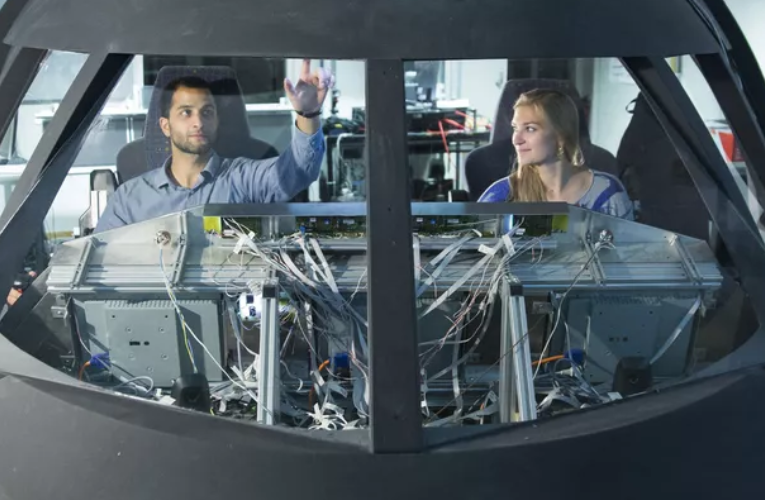Technical University of Munich: Exploring New Frontiers in Aerospace Engineering.
Technical University of Munich: Exploring New Frontiers in Aerospace Engineering
The Technical University of Munich (TUM) has long been a powerhouse in engineering and scientific research, known for its innovation and contributions to cutting-edge fields. Among its most dynamic areas of study is aerospace engineering, where TUM is advancing the next generation of aerospace technology and pushing boundaries with pioneering research. From sustainable aviation solutions to deep-space exploration, TUM’s aerospace engineering program is transforming the global landscape of aviation and space science.
Leading Research and Innovation in Sustainable Aviation
One of TUM’s focal points in aerospace engineering is sustainable aviation. As the world grapples with climate change, the aerospace industry faces increasing pressure to reduce emissions and minimize environmental impacts. TUM’s researchers and engineers are developing groundbreaking technologies that focus on eco-friendly materials, hybrid-electric propulsion systems, and optimized aerodynamic designs to lower fuel consumption.
Through initiatives like the Clean Sky 2 and European Green Deal, TUM collaborates with leading companies and research institutions across Europe to pioneer clean aviation technology. The university’s efforts in this domain include testing alternative fuels, such as biofuels and synthetic fuels, which are less carbon-intensive than traditional jet fuel. Additionally, its work on electric propulsion systems aims to create aircraft that operate with minimal emissions, paving the way for sustainable air travel and marking a significant leap in the aerospace sector.
Space Exploration and Interdisciplinary Research
TUM is also at the forefront of space exploration, engaging in interdisciplinary research that combines engineering, computer science, physics, and even biology. This approach allows TUM to tackle complex challenges associated with deep-space missions, planetary exploration, and satellite technology. Notably, TUM’s research in satellite technology contributes to earth observation, climate monitoring, and disaster management—applications that have immediate relevance to global challenges.
The university’s participation in the European Space Agency’s (ESA) programs highlights its active role in international space missions. TUM students and faculty members contribute to groundbreaking projects, such as designing satellite systems and developing autonomous robotics for space exploration. This commitment to collaborative research enhances TUM’s reputation as a leading institution in space science and strengthens Germany’s position in the global space race.
Advanced Aerospace Materials and Aerodynamics
Materials science and aerodynamics are key aspects of aerospace engineering, and TUM’s research groups are pushing the envelope in these fields. Lightweight yet durable materials are crucial for modern aircraft and spacecraft, as they improve fuel efficiency and operational reliability. TUM engineers are researching advanced composites, nanomaterials, and additive manufacturing techniques to create aerospace components that are stronger, lighter, and more resistant to extreme conditions.
In the area of aerodynamics, TUM employs advanced computational fluid dynamics (CFD) tools and wind tunnel testing to optimize aircraft design. These tools are instrumental in refining the structure and functionality of aircraft, ensuring they meet both performance and safety standards. The university’s dedicated aerodynamics lab allows students to experiment with real-world applications, preparing them for the evolving demands of the aerospace industry.
Robotics and Artificial Intelligence in Aerospace Applications
A key differentiator for TUM’s aerospace program is its integration of robotics and artificial intelligence (AI) in aerospace applications. TUM researchers leverage AI to develop autonomous drones, pilot assistance systems, and robotic solutions for space exploration. These advancements enable safer and more efficient aerospace operations, with potential applications ranging from automated inspections of aircraft components to autonomous navigation in space.
TUM’s Institute of Robotics and Embedded Systems is a key contributor to these breakthroughs. Collaborating with companies like Airbus and research centers across Europe, the institute focuses on creating smart, adaptive systems that enhance safety, precision, and reliability in both aviation and space missions. Through hands-on projects, students gain valuable experience working on cutting-edge AI technologies, which are fast becoming essential in the aerospace industry.
Preparing the Next Generation of Aerospace Engineers
At TUM, aerospace engineering students are not just educated—they are empowered to innovate and excel. The university’s curriculum is a balanced blend of theoretical knowledge and practical experience, designed to cultivate creativity, problem-solving skills, and technical expertise. Students have access to state-of-the-art labs, research facilities, and simulation tools that provide them with hands-on experience in real-world aerospace engineering.
In addition to classroom learning, TUM emphasizes industry partnerships and internship programs with top aerospace companies. This exposure gives students insights into industry practices and helps them develop the skills necessary to tackle future challenges. Many TUM alumni are now leaders in aerospace companies, research organizations, and space agencies, illustrating the university’s influential role in shaping the field of aerospace engineering.
